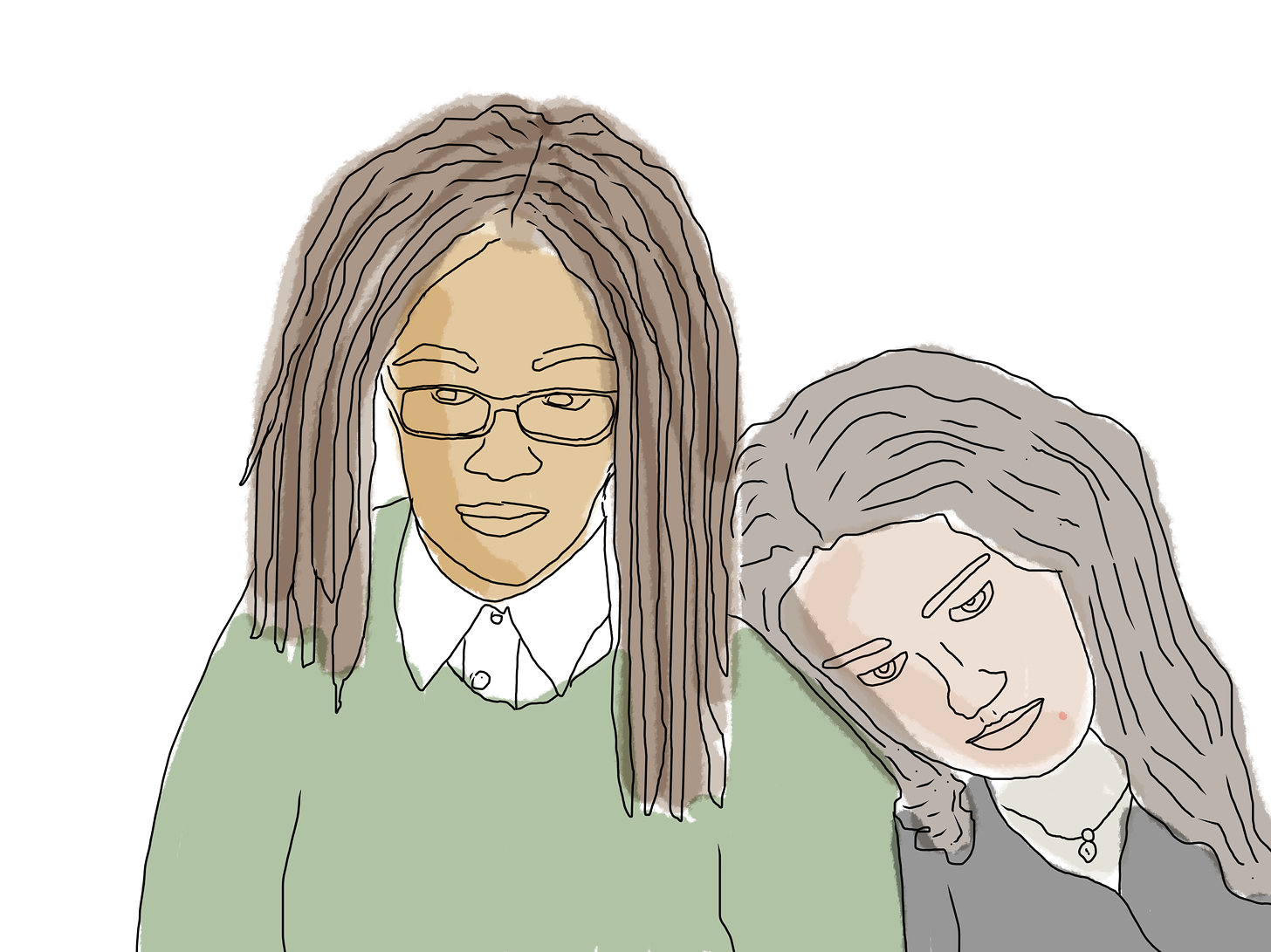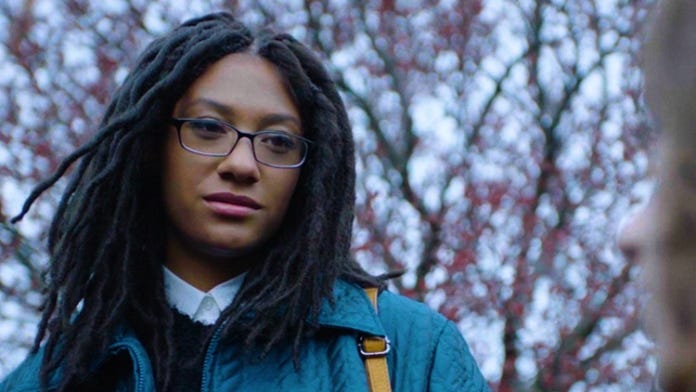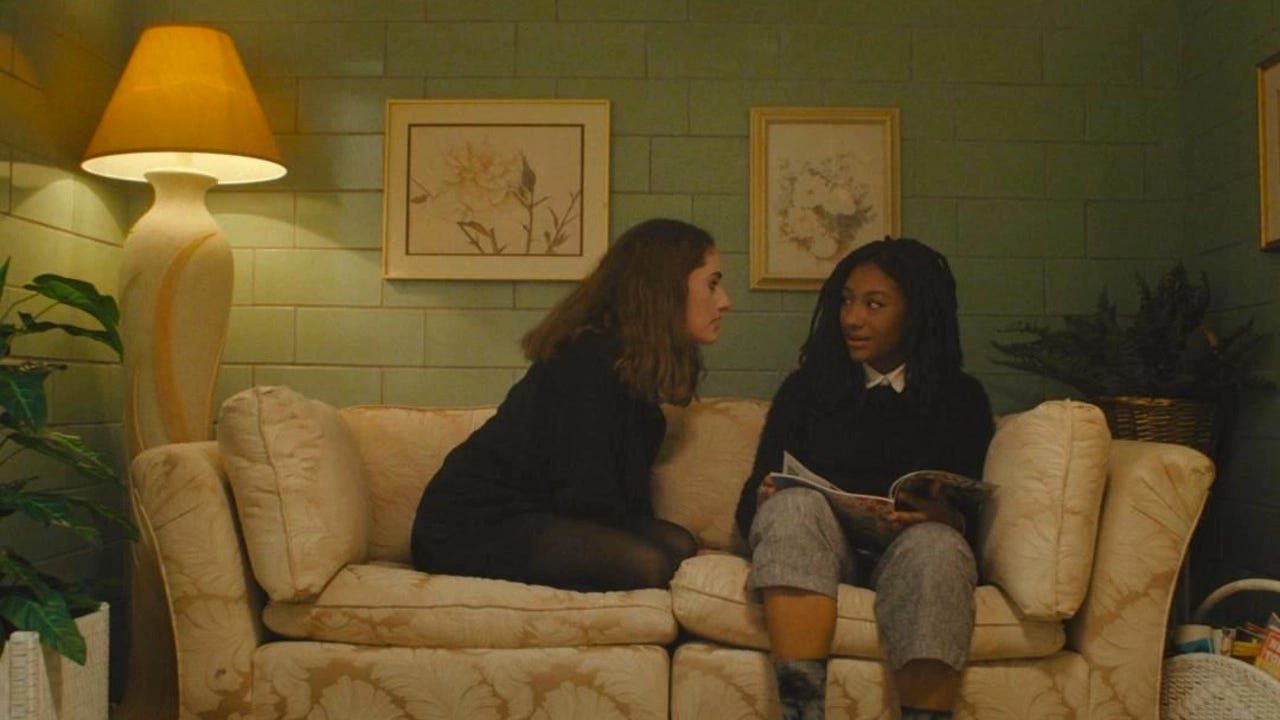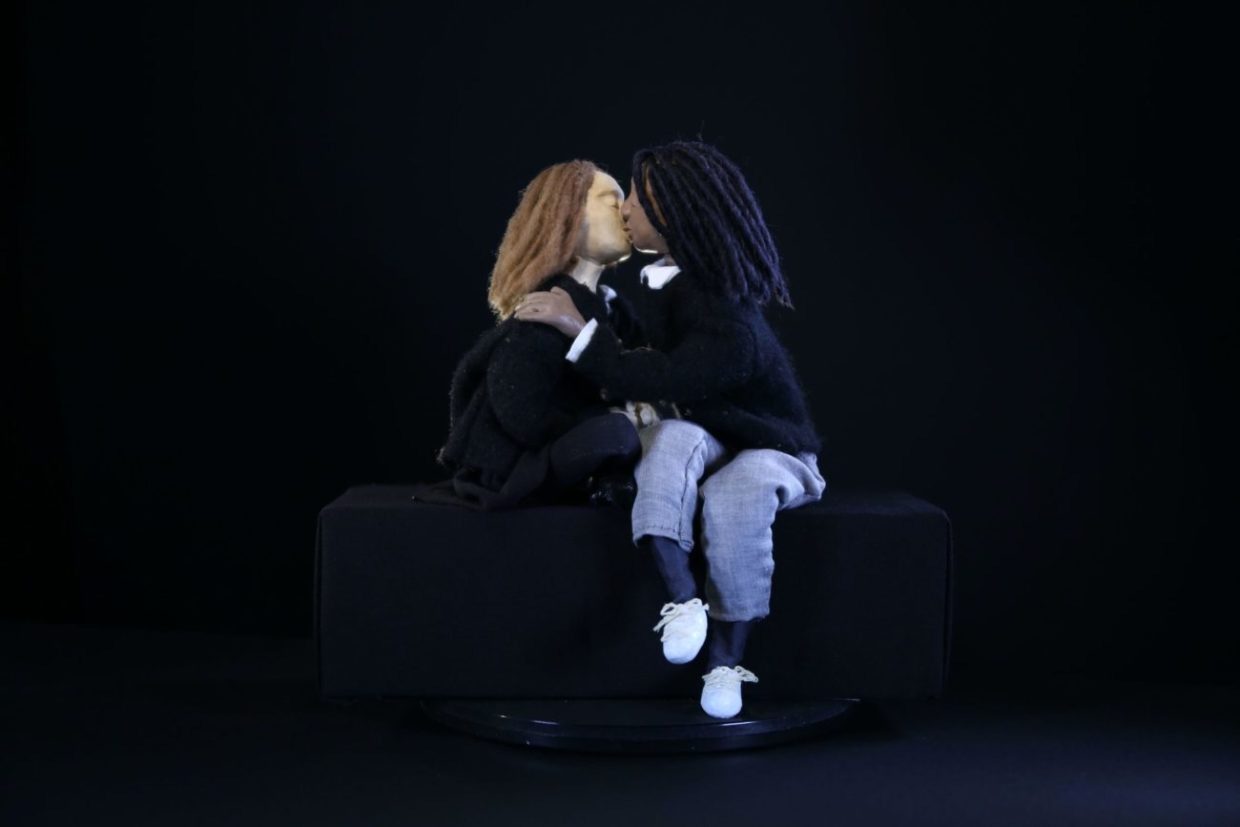Read on after this review for a new segment we’re calling, “The Elephant in the Werkroom” (we know no one asked for this). Whether you love it or hate it, RuPaul’s Drag Race is back for Season 15, and we’re watching.
The Yearning Rating: ✰✰✰
Romance ✰
Sex ✰
Storytelling ✰✰✰✰
Performance ✰✰✰✰
Yearning ✰✰✰✰✰
This review contains light spoilers.
Written by Ali Romig
In high school, very little carries the same emotional weight as having a crush. Even more so, an unrequited crush (extra points for a queer unrequited crush—the absolute pinnacle of emotionally devastating adolescent experiences). Basically, in the world of high school crushes, there’s a hierarchy of agony (different from a triangle of sadness). But no matter where you fall on the pyramid, your personal crush will always feel all-important; the rest of the world be damned.
So what might happen if you take the pubescent angst of confusing, hormone-addled feelings and let them play out against the backdrop of an actual tragedy—say, a classmate’s funeral? Well, then the funeral might end up looking like a nuisance, a distraction from the true priority of the teen mind: love (or the warped idealization of it).
Olivia Peace’s film, Tahara, follows Carrie Lowstein (Madeline Grey DeFreece), a Black Jewish girl who must spend the day at synagogue, attending the funeral of a queer classmate who died by suicide. With her is BFF Hannah Rosen (Rachel Sennott, who is doing a bang up job of making “queer Jewish funeral movie” her brand). It becomes evident early on that Hannah is more than Carrie’s BFF—she’s also Carrie’s crush. But Hannah is crushing on Tristan (Daniel Taveras), who is also at the funeral. Hannah’s rival, Elaina (Shlomit Azoulay) is also there and also crushing on Tristan. See what I mean, re: hierarchy of agony? After the funeral, the teens must stick around for a “Talk-Back” to discuss their feelings about grief and faith—a clearly performative practice.
Despite taking place at a funeral, the film doesn’t spend much time ruminating on questions of life and death. Samantha, the classmate who they are mourning, ends up feeling like an afterthought at best. Details of her death are dispensed throughout the film like gossip—the tone conspiratorial, rather than solemn. There’s a point to be made here about how kids and teens don’t experience death as acutely as adults do—even when their inevitable mortality is staring them in the face—but I think the more interesting issue the film explores is the struggle to make sense of a life cut so short. We see family and community members labor to eulogize Samantha in any kind of satisfying way, instead going on about her academics and how she “liked horses.” How do we honor who someone was when they were just starting to figure it out themselves?
The pain in this movie has less to do with sorrow and more to do with the discomfort of not knowing what to say—or not having anything much to say at all. One scene that stuck out to me for its overwhelming, yet apt cringey-ness was when the mother of the deceased tries to talk to Carrie and Hannah at the reception, thanking them for coming and—it seemed to me—fishing for them to say something kind about her daughter. However, the two girls (Hannah especially) can barely bring themselves to engage in the conversation, instead squirming to get away. Throughout the film, Hannah repeatedly exclaims how bored she is before begrudgingly correcting herself—”I mean, sad”—off shocked looks from Carrie. It would be easy for this overt cruelty to come across as unrealistic, but the actors and Peace’s direction manage to make it feel recognizably, if hyperbolically, human.
DeFreece’s Carrie is halting and earnest, played so subtly that her familiar teenaged mannerisms don’t feel like a performance of adolescence but an embodiment of it. A lot of “teen” media these days can come across as put on—a painfully obvious adult interpretation of what it’s like to be eighteen—but this film, and DeFreece’s performance in particular, feels rooted in the specificity of the age. More so than other characters, we watch Carrie change herself in order to “belong,” before finally asserting herself. The anxiety that comes with feeling out of place is evident in DeFreece’s uncertain body language and weary expressions. While this may be informed by any number of things (her queerness, her Blackness in an overwhelmingly white space), it’s never directly mentioned—it’s just a part of her reality. And despite her precisely drawn characterization, she still manages to be deftly comedic opposite the much more ridiculous Sennott.
Sennott’s Hannah is a tornado of a person. She’s rude, selfish, and thoughtless, yet surprisingly vulnerable in her clumsy performance of confidence. Carrie’s crush on her is both baffling and completely understandable. As a queer woman, I recognize Hannah as symbolic of the objects of my own misguided youthful affection—magnetism and vileness all wrapped up together. Before manipulating Carrie into kissing her as “practice,” Hannah takes a moment to absentmindedly pop her zit in the mirror of the girl’s bathroom. Moments like this feel poignant because they reflect the casual gruesomeness of Hannah’s character while also pointing out the comfort level between her and Carrie. Carrie struggles to straddle the line between these two truths, failing to see Hannah fully until she’s eventually pushed too far.
Jess Zeidman’s script has a lot to do with the success of the film. It would be easy for a movie about a young person’s funeral to feel melodramatic or overwrought (John Green-esque, if you will), but Zeidman grounds the characters in their own heads so skillfully that nothing is predictable. The stilted dialogue highlights how no one is willing to make a definitive statement for fear that it may be used against them in the end. As a viewer, this can be maddening, but it also makes it so that when Carrie finally does speak plainly, the sense of relief is overwhelming.
The subtlety of Zeidman’s script works surprisingly well in contrast to Peace’s bold direction. This movie is full of artistic choices, some more on the nose than others. When we meet each character, they are introduced via their social handles, an obvious nod to the “app-obsessed youth.” While this might garner eye rolls from some, a less glaring and more effective take on this same idea is that almost the entire film is shot in a 1:1 aspect ratio, similar to what you might find on Instagram. The overall result is an inescapably claustrophobic viewing experience. The only times that this aspect ratio is widened is when Hannah and Carrie kiss, suggesting their connection might feel like a reprieve from this otherwise suffocating world. Only, when the shot widens, they become animated. Literally—Hannah and Carrie are replaced with claymation versions of themselves. While their connection may offer an escape, it’s sadly an escape into a similarly artificial alternative.
While I may not have loved every single choice Peace made, I absolutely loved that they were taking risks. In the end, these choices elevated the film from teen dramedy to something incredibly artistic (and who says a film can’t be both?). With an under-90-minute run time, this is an inventive and delectable morsel of a film—exactly what I want out of low-budget queer cinema. In Tahara, queerness goes beyond the subject matter—it’s reflected in the ways the creators shirk the straightforward to find new ways of communicating something timeless.
The Hebrew word “tahara” is defined as the “cleansing of the body.” More specifically, it is a Jewish cleansing ritual performed on a body after death to prepare it for burial. Carrie spends the film trying to cleanse herself of Hannah; her allure, her influence, her judgment. Not in preparation for death—but so that her life can finally begin.
Tahara is available to rent or purchase on Amazon Prime.
The Elephant in the Werkroom
Welcome to a new weekly segment of The Yearning.
This is where we’ll discuss RuPaul’s Connecticut Drag Race (while it’s airing) by summarizing our thoughts on the episode into one or two quick soundbites for you to chew on. We know not everyone loves this show, but we’re watching it and must begrudgingly admit that it is joyful. We have thoughts—so now you have to hear them!
Episode 1:
This episode managed to genuinely surprise me in its simplicity—there were no chocolate bars, no double shantays, no confusing lip sync battles…it felt like a (welcome) return to the standard.
Anetra (six letters, three vowels) gave a shining example of what a talent show should be—flawlessly executed and not overly-complicated concept-wise.
More surprises! Ru judged this week’s Lip Sync For Your Life based on the lip sync itself, and not which queen has more overall potential…
I can’t wait for when Sugar and Spice inevitably end up in the bottom two together (and Spice wins).
BONUS: If you haven’t already, watch this week’s Pit Stop to see an absolutely zooted Jinkx Monsoon try to have a conversation.









Love love love the gay Jewish funeral genre!!